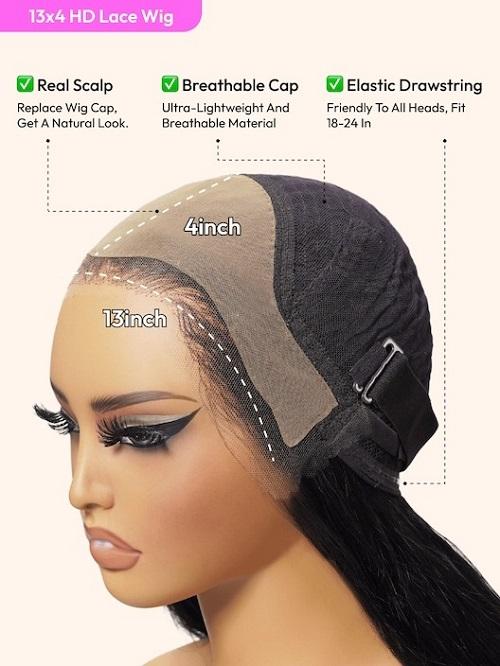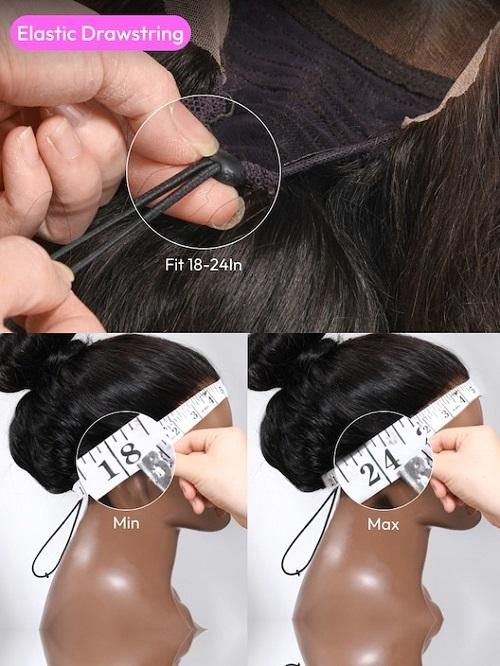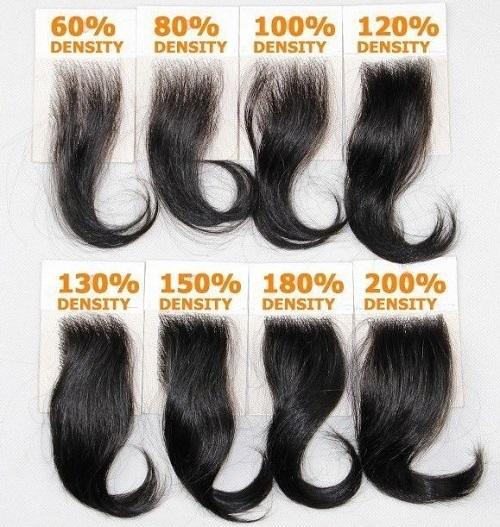
Which Wig Is More Comfortable to Wear? Your Guide to All-Day Ease
Let’s cut to the chase: ain’t nobody got time for a wig that feels like a scratchy, suffocating helmet. Whether you’re new to wigs or a seasoned pro, comfort isn’t negotiable—it’s everything. So, what makes one wig feel like a dream while another’s a hot mess? Buckle up; we’re breaking it down, real talk.
What Makes a Wig Comfortable?

Source: UNice Hair
Think about your favorite baseball cap or beanie. Why’s it comfy? It’s probably:
✅ Light as a feather: Not dragging your neck down.
✅ Breathes easily: Lets your scalp chill, no sauna situation.
✅ Fits just right: Snug enough to stay put, loose enough you forget it’s there.
✅ Feels soft: No itchy nonsense rubbing your skin raw.
✅ Stays put: You shouldn’t be doing the "wig adjust" shuffle all day.
Factors Affecting Wig Comfort
Here’s what really makes or breaks that comfy feeling:
Cap Construction
Breathable Caps (Lace Front, Monofilament, Open Weft): Stay cool and comfortable with lightweight, ventilated designs that let air flow freely.
Full Coverage Caps (Basic Wefted, Capless): Get durable, affordable coverage, though the denser construction can feel warmer and heavier.
Cap Size & Adjustability

Source: UNice Hair
A game-changer for comfort! Adjustable straps (elastic or Velcro) let you snap the perfect fit to your head – no headaches, no slippage. Essential for all-day comfort.
Hair Density
Choose a lower density (like 130% or 150%) for a feather-light feel and much more air flow, perfect for hot days or if you dislike bulk. Higher density (180%+) gives plush fullness but feels warmer and heavier. Want to dive deeper? Read more about what hair density is to expand your wig knowledge.
Also Read: 150 VS. 180 VS. 200 Density Wigs, Which One Is Best?
Material
100% Human Hair: Known for its natural feel, breathability, and heat styling compatibility, it requires more upkeep and comes at a higher price point. Often preferred for comfort and ventilation.
Synthetic Hair: Synthetic wigs are cheaper and lighter than human hair wigs. Quality varies; better synthetics are soft and comfortable, while cheaper ones may tangle, feel less natural, or trap heat.
Read More: Synthetic Vs. Human Hair Wigs, Which One Is Better?
Installation Method
Glue/Tape: Gives the most secure, invisible hairline but requires adhesives directly on your skin, which can irritate and needs special removers.
Glueless (Straps, Clips): Way easier, gentler on skin, and comfier since nothing's stuck to you – just pop it on and off with no mess. Winner for comfort and ease.
Read More: How To Put On A Wig? A Comprehensive Guide.
How to Pick Your Perfectly Comfortable Wig: Your Checklist
Prioritize the Cap
Seriously, this is 50% of the comfort game. Choose a breathable cap construction (lace front, mono top, open cap) whenever possible, especially for regular or warm-weather wear. Ensure it has an adjustable strap.
Get Sizing Right
Measure your head accurately! A wig slightly too big will slip; one too small will hurt. Adjustable straps help, but starting close to your size is key. Luckily, we offer wigs for small heads and wigs for large heads, so you can find the perfect fit without compromise.
Material Matters
Human hair offers peak natural comfort and breathability. If opting for synthetic, choose high-quality, heat-defiant fibers known for softness. Touch it if possible!
Start Lighter on Density

Source: Pinterest
Unless you need maximum volume, opt for light or medium density (130%-150%) for better airflow and less weight. You can always add clip-ins later for extra oomph.
Embrace Glueless
For everyday comfort and ease, glueless installation is usually the way to go. Save the glue for special occasions where you need absolute, undetectable hold and are willing to deal with the process.
Read Reviews Like a Detective
Look specifically for mentions of "comfortable," "lightweight," "breathable," "no itch," and "stayed put." Real user experiences are gold.
Final Thoughts
So, which wig is more comfortable to wear? Honestly, the comfiest wig is a light, breathable, adjustable human hair wig, but the best fit varies. Try some to find what's easy, confident, and suits you.


